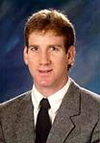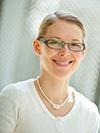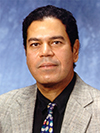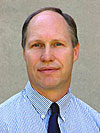Engineering faculty named as Fellows
Engineering faculty named as Fellows
| Magazine Section: | Our People, Our Culture |
|---|---|
| College or School: | CoE |
| Article Type: | Article |
The College of Engineering congratulates Ernest (Chip) Blatchley III, Alexandra (Sasha) Boltasseva, Ji-Xin Cheng, Bernard Engel, Ahmed Hassanein, Joseph Irudayaraj, Monika Ivantysynova, David J. Love, Robert Lucht, and Fabio H. Ribeiro, who were named as Fellows in 2014.
Ernest (Chip) Blatchley III, professor of civil engineering and professor of environmental and ecological engineering, has been elected as a Fellow of the American Society of Civil Engineering in February 2014. ASCE fellows are legally registered professional engineers or land surveyors who have made significant technical or professional contributions and have demonstrated notable achievement in responsible charge of engineering activity for at least 10 years following election to the ASCE grade of member.
Blatchley has made significant contributions to disinfection processes, with applications to drinking water, wastewater treatment and swimming pool chemistry.

Alexandra (Sasha) Boltasseva has been named a fellow of the Optical Society (OSA). She was cited for “seminal contributions to the fields of nanophotonics and new plasmonic materials.”
OSA members who have served with distinction in the advancement of optics and photonics can be proposed for election to the class of fellow. The number of fellows is limited by the society's bylaws to be no more than 10 percent of the total OSA membership and the number elected each year is limited to approximately 0.4 percent of the current membership total.

Ji-Xin Cheng, professor of biomedical engineering and professor of chemistry, was elected to the American Institute for Medical and Biological Engineering (AIMBE) College of Fellows.
The AIMBE College of Fellows represents the top two percent of medical and biological engineers nationwide. Cheng was inducted into the College of Fellows at AIMBE’s annual event in March 2014 in Washington, DC at the National Academy of Sciences.

Bernard Engel, professor and head of agricultural and biological engineering, was named Fellow of the American Society for Agricultural and Biological Engineers (ASABE) at the organizations Annual International Meeting in June 2014.
ASABE defines a Fellow as a member of unusual professional distinction, with outstanding and extraordinary qualifications and experience in, or related to, the field of agricultural, food or biological systems engineering.
They possess a minimum of 20 years of active practice in, or related to, the profession of engineering; the teaching of engineering; or the teaching of an engineering-related curriculum and a minimum of 20 years as an active Member-Engineer or Member in ASABE. This is ASABE's highest honor.

Ahmed Hassanein, head and the Paul L. Wattelet Professor of Nuclear Engineering, has been elected as a fellow of the American Physical Society (APS).
APS cited Hassanein for “pioneering contribution to comprehensive models, simulation and innovative experiments for verification of plasma evolution and interactions with materials for applications in fusion devices, laser and discharge-produced plasma, and nano lithography.”
Election to fellowship in the APS is limited to 0.5 percent of its membership.

Joseph Irudayaraj, professor of agricultural and biological engineering and deputy director of the Bindley Bioscience Center, was elected to the American Institute for Medical and Biological Engineering College of Fellows at AIMBE’s 2014 Annual Meeting at the National Academy of Sciences Great Hall in Washington, DC in March.
The College of Fellows is comprised of the top two percent of medical and biological engineers in the country. The most accomplished and distinguished engineering and medical school chairs, research directors, professors, innovators and successful entrepreneurs comprise the College of Fellows.

Monika Ivantysynova, the Maha Named Professor in Fluid Power Systems and founder of the Maha Fluid Power Research Center at Purdue, was named a Fellow of SAE International in April 2014.
SAE Fellow is the highest grade of membership bestowed by SAE International. It recognizes outstanding engineering, scientific and leadership accomplishments by an individual that have resulted in meaningful advances in automotive, aerospace and commercial vehicle technologies.
The program, established in 1975, recognizes an average of 20 recipients worldwide for this honor each year.

David J. Love, professor of electrical and computer engineering, was named an Institute of Electrical and Electronics Engineers (IEEE) Fellow in January 2014. He was cited for his contributions to feedback-adaptive wireless communications systems.
The IEEE Grade of Fellow is conferred by the IEEE Board of Directors upon a person with an outstanding record of accomplishments in any of the IEEE fields of interest. It is the highest grade of membership and is recognized by the technical community as a prestigious honor and an important career achievement.

Robert Lucht, the Ralph and Bettye Bailey Professor of Combustion in Mechanical Engineering, was elected a Fellow of the American Institute of Aeronautics and Astronautics (AIAA). He was honored for the development and application of novel laser diagnostic techniques for aerospace applications and for outstanding service to AIAA.
The distinction of Fellow is conferred by AIAA upon outstanding members of the Institute who have made notable and valuable contributions to the arts, sciences, or technology of aeronautics or astronautics. In 1933, Orville Wright became AIAA’s first Honorary Fellow. Today, AIAA Honorary Fellows and AIAA Fellows are the most respected names in the aerospace industry.

Fabio H. Ribeiro, the R. Norris and Eleanor Shreve Professor of Chemical Engineering, was elected Fellow of the American Institute of Chemical Engineers (AIChE) in June 2014. This is the highest grade of membership for AIChE and testifies to the high esteem by which he is held by his peers for his professional accomplishments and contributions.
His research interests are centered on the kinetics of heterogeneous catalytic reactions and catalyst characterization under reaction conditions. He has co-authored over 100 articles in scholarly journals. He was chair for the AIChE Catalysis and Reaction Engineering Division (2010) and is editor for Journal of Catalysis.

Comments